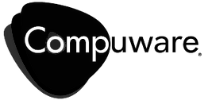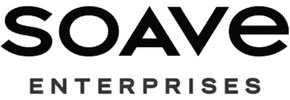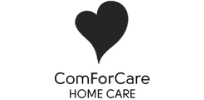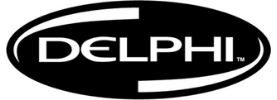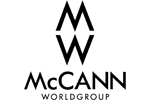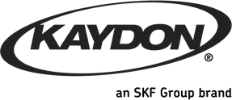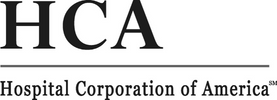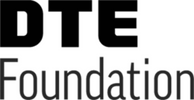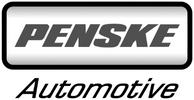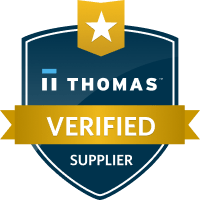
Navigating the evolving digital world of 2024, Search Engine Optimization (SEO) continues to be a pivotal element in online marketing. This era, marked by rapidly changing technology and consumer habits, necessitates a deep understanding of SEO’s cost-effectiveness for all business sizes.
In this digital age, the impact of SEO on business is more pronounced than ever. Effective SEO catapults your website to the top of search engine results, ensuring a steady flow of organic traffic without the cost associated with paid avenues.
While Paid Search might seem like a manageable and straightforward approach, it’s not always the best strategy. Paid campaigns offer immediate visibility, but they often lead to higher bounce rates. More importantly, they don’t contribute significantly to long-term brand building. In contrast, SEO provides a solid foundation for your brand’s online presence, enhancing recognition and trust over time. This organic approach, unlike Paid Search, fosters a deeper connection with your audience, making it a more sustainable choice for brand development.
Understanding that SEO is not a finite task, but a continuous investment is crucial for businesses. With ever-changing search engine algorithms, adapting your SEO strategy is a never-ending journey, representing a sustained commitment to your brand’s online presence and authority. Embracing this ongoing nature of SEO is essential in the ever-evolving digital marketing landscape of 2024.
The Evolving Search Engine Optimization Landscape
Search Engine Optimization (SEO) in 2024 transcends the traditional focus on keywords and backlinks. This field has been revolutionized by AI and machine learning, which now play a pivotal role in content optimization and search algorithms. These technologies enable more nuanced and context-aware optimizations, moving beyond keyword stuffing to content that genuinely addresses user intent.
User experience (UX) has also become a critical factor. Search engines now prioritize sites that provide an engaging, user-friendly experience, making website design and usability key components of SEO strategy.
Voice search optimization is another significant trend. As voice-activated devices become ubiquitous, optimizing content for natural language queries is essential. This involves understanding the conversational tone and context in which voice searches are conducted.
Additionally, mobile-first indexing has changed the game. With most searches now happening on mobile devices, search engines prioritize mobile-optimized websites. This necessitates responsive design and faster loading times to rank well.
These advancements have not only diversified search engine optimization (SEO) strategies but also impacted the cost. Investing in advanced technologies, enhanced UX, and mobile optimization requires resources, but these are essential for staying competitive in the digital landscape of 2024.
Understanding Search Engine Optimization Costs
The cost of Search Engine Optimization (SEO) services varies widely, depending on factors such as the size of your business, the competitiveness of your industry, and the specific goals you aim to achieve. Typically, costs can range from a few hundred dollars a month for basic services to several thousand for more comprehensive, custom strategies.
- DIY vs. Professional SEO: While DIY can save upfront costs, professional SEO services offer expertise and ongoing support.
- On-Page vs. Off-Page SEO: On-page SEO involves optimizing website elements, while off-page focuses on external factors like backlinks.
- Local vs. National SEO: Local SEO is usually less expensive but crucial for businesses targeting local customers.
Leveraging Guest Blogging for Effective SEO Link Building
Guest Blogging has emerged as a key strategy in 2024 for acquiring high-quality backlinks, a fundamental element of a robust search engine optimization (SEO) campaign. This practice involves writing and publishing articles on other reputable websites, which in turn link back to your site. Not only does this enhance your website’s authority and search engine rankings, but it also exposes your brand to a broader audience.
The effectiveness of guest blogging lies in its dual benefit. First, it provides valuable content for the host website, enriching their content portfolio. Second, it grants your site credible backlinks, which search engines use as a significant ranking factor. When selecting platforms for guest blogging, prioritize websites relevant to your industry and with a strong online presence. This ensures that the backlinks are not only authoritative but also contextually relevant.
Moreover, guest blogging is a powerful tool for establishing thought leadership and industry expertise. By sharing insights and expertise in your niche, you attract more than just search engine bots; you engage a real audience, fostering trust and recognition in your field.
Harnessing the Power of PR and Media Relations for SEO and Brand Marketing
In 2024, integrating Public Relations (PR) and media strategies into your SEO and brand marketing efforts has become increasingly important. Utilizing PR tactics, such as press releases and media outreach, can significantly enhance your brand’s visibility and credibility, while also contributing to your SEO backlink strategy.
Securing coverage in news media or industry publications, not only do you gain exposure to their audiences, but you also acquire valuable backlinks from authoritative sources. These backlinks are crucial for improving your search engine rankings, as they signal to search engines that your website is a reputable source of information.
Furthermore, PR-driven content like press releases, when crafted strategically, can capture the attention of journalists and influencers in your industry. This leads to additional media coverage and mentions, further expanding your reach and reinforcing your brand’s authority.
The key benefit of this approach is twofold: it positions your brand at the forefront of your industry’s conversations and simultaneously supports your SEO efforts by building a strong network of high-quality backlinks. This synergy between PR and SEO is a powerful tool in modern digital marketing, amplifying your brand’s online presence and authority.
Maximizing Conversion Potential: The Synergy of SEO and CRO
Conversion Rate Optimization (CRO) has become an integral part of SEO strategies in 2024, especially when it comes to ensuring that the influx of website traffic translates into tangible business outcomes. The focus of SEO has evolved from merely attracting visitors to attracting the right visitors – those most likely to engage, convert, and become loyal customers.
CRO is about making your website more effective at turning visitors into leads or sales. It’s a critical in-website marketing activity that works together with SEO. While SEO efforts bring quality traffic to your site, CRO ensures that this traffic does not go to waste. By analyzing user behavior, preferences, and pain points, conversion rate optimization strategies involve optimizing webpage elements like calls-to-action (CTAs), layout, content, and user journeys to enhance the user experience and increase the likelihood of conversion.
In essence, investing in CRO is investing in the effectiveness of your website. It’s not just about attracting more eyes to your page; it’s about capturing those eyes and turning interest into action. This synergy of SEO and CRO is what makes the traffic garnered not only substantial in quantity but also exceptional in quality, making each visitor a potential lead and every click a step closer to a sale.
Measuring ROI in Search Engine Optimization: Utilizing Analytics for Insightful Decision-Making
Understanding the return on investment (ROI) from SEO is intricate yet critical for gauging the effectiveness of your marketing strategies. Tools like Google Analytics and Google Search Console are instrumental in this process, offering a deep dive into valuable data. They track key performance indicators such as organic traffic, conversion rates, search rankings, and user behavior. This data not only quantifies the impact of your SEO efforts but also offers insights for future strategy refinement.
Determining if SEO yields a tangible ROI is a prevalent concern for businesses. Generally, the investment in SEO proves worthwhile, although measuring this precisely can be challenging. By leveraging the comprehensive analytics provided by Google’s tools, companies can dissect their SEO efforts to understand the direct correlation between their strategies and key outcomes like increased traffic, improved engagement, and higher conversion rates.
Google Analytics and Search Console offer a layered view of how users interact with your website, tracing their journey from the initial search query to the final action. This information is invaluable in understanding what attracts and engages your audience. It allows businesses to allocate resources more effectively, focusing on high-performing keywords and content types that drive conversions.
Moreover, these tools can help in fine-tuning your ROI calculations. By attributing conversions and sales directly to specific SEO tactics, you gain a clearer picture of your campaign’s success. This detailed approach goes beyond basic ROI calculations, providing a more nuanced understanding of each element’s contribution to the overall strategy.
The integration of data from Google Analytics and Search Console into your SEO strategy is not just about measuring success—it’s about driving informed decisions that enhance your online presence and maximize return on your SEO investments.
Maximizing Your Digital Footprint with Strategic Search Engine Optimization Investments
In the fast-paced digital era of 2024, the significance of SEO in carving out a competitive edge online is more pronounced than ever. Investing in SEO is not just a necessity but a strategic move for businesses aiming to thrive in the digital marketplace. Understanding the multifaceted nature of SEO costs and effectively leveraging the latest techniques is crucial for online prominence and business growth.
While the investment in SEO might appear substantial, it encompasses a wide range of critical activities, including comprehensive content creation, strategic link building, and in-depth keyword research. This holistic approach ensures that every aspect of your online presence is optimized for maximum visibility and engagement.
More than just a tool for enhancing website traffic, SEO is about building a strong online brand and fostering meaningful connections with your audience. The convergence of various SEO tactics culminates in a robust online presence, paving the way for increased conversions and sustained business growth.
As we progress through 2024, the landscape of digital marketing will continue to evolve, and with it, the strategies for effective SEO. Staying informed and adaptable, embracing innovative practices, and understanding the value of your SEO investment are key to making SEO work for your business’s unique needs and objectives.
Author: Melih Oztalay





